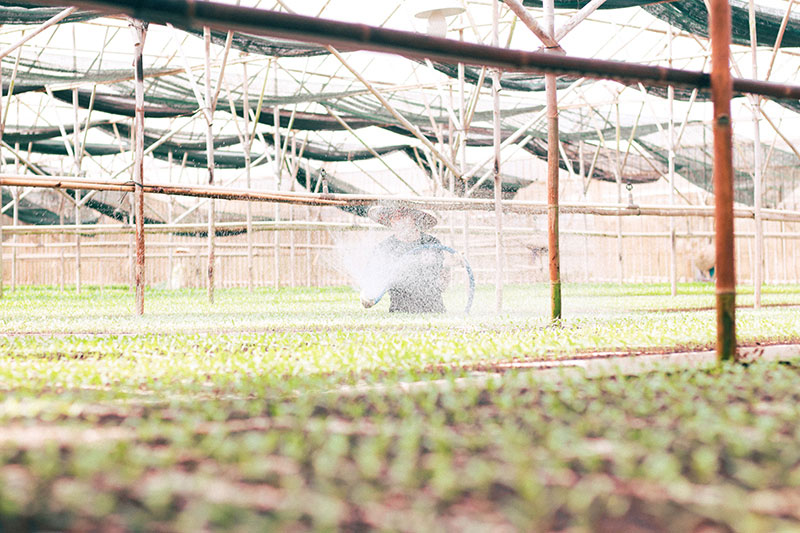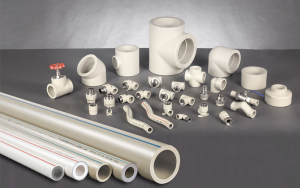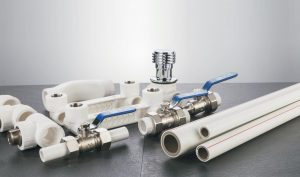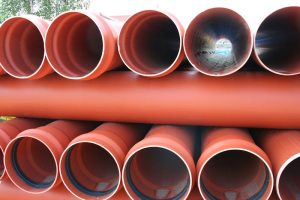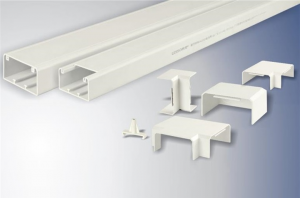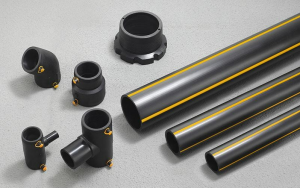Table of Contents
All life on Earth needs clean water to thrive. Humans have used irrigation for more than 5,000 years to guarantee everyone access to water.
Long ago, people had limited irrigation options, especially in geographic areas with insufficient underground resources or precipitation. In some regions, they relied only on basic techniques that often required daily maintenance or created laborious difficulties, such as canals and wells connected to aqueducts, seasonal and storm flooding from large regional water bodies, and lifting water to channels via waterwheels.
Farming Innovations: Irrigation Systems
Modern innovations like agricultural irrigation pipes have greatly improved upon these systems. LESSO offers a wide range of irrigation pipe products that make more efficient and cost-effective watering possible. Age-, abrasion-, and corrosion-resistant LESSO pipes feature smooth interiors and corrugated exteriors made of durable, flexible materials designed to maintain appropriate pressure and protection throughout. LESSO pipes also feature structural reinforcement that makes them last longer, even with exposure to extreme elements.
What Is the Main Role of an Irrigation Pipe?
Irrigation pipes offer a diverse solution. As with ancient systems, the hollow tubes help farmers and others transport water to crops, gardens, and landscapes.
Yet, this is not all they do. Irrigation pipe systems help people control the amount of water they distribute in specific areas. Pipes provide a durable solution that can serve as the main transport and control system or as a barrier protecting another system.
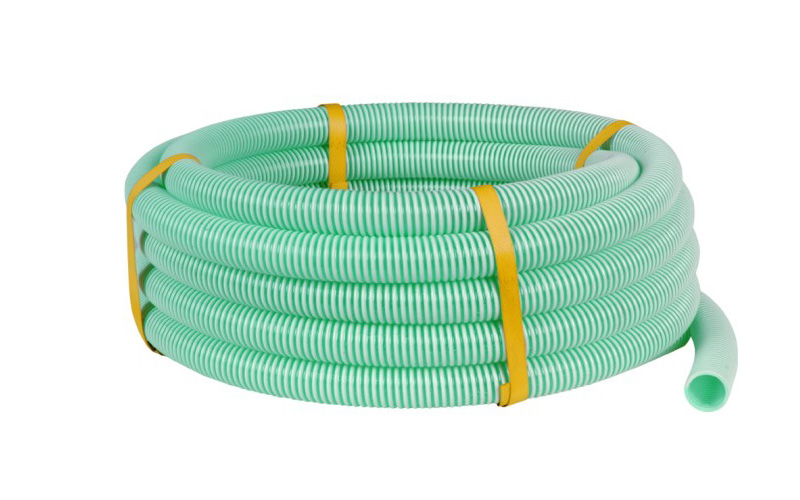

Agricultural Irrigation Pipe: Three Main Types
Irrigation pipes used in agriculture must contain materials strong enough to withstand rapid changes in pressure, temperature, and other forces. The three top products:
PVC Pipe and polyvinyl chloride pipes handle outdoor water transportation applications best in warmer climates. UV-protected, temperature-resistant PVC pipes can be used almost anywhere.
The most common PVC options are Schedules 40 and 80. The latter provides the strongest solution, especially in rocky soil. PVC pipe also describes a wide range of irrigation system hoses made of PVC, such as polyester-reinforced, steel-reinforced, and suction hoses.
Poly Pipe: Flexible polyethylene is perfect for almost any environment. It has high-pressure ratings, with low-numbered tubes providing the most robust solution. The most common options include PSI 80, 100, 160, and 250. Poly pipe isn’t prone to cracking from freezing temperatures or water. Lastly, a poly pipe irrigation system handles rocky soil well.
HDPE Pipe: High-density polyethylene is a thermoplastic that offers many of the same benefits as poly pipe. People use it for both drinking and wastewater applications. This extremely flexible solution handles internal and external pressures, temperature variability, and other stresses extremely well.
Benefits of PVC Irrigation Pipes
PVC irrigation pipe and hose products provide users with high-quality, lasting solutions for agriculture facilities and water-saving irrigation applications.
PVC pipes feature corrosion-resistant, lightweight, long-lasting, and non-toxic materials that are highly adaptable to any need. An experienced irrigation system installer can easily carry, bend, custom-cut, and install them almost anywhere quickly and efficiently, including in difficult underground areas, tight spaces indoors, and spots far off the beaten path. As a result, they are a cost-effective, efficient, and safe irrigation solution.
Irrigation Piping for Different Climates and Environments
The local climate and growing environment directly affect irrigation product selection. The choice of a specific product or product depends entirely on the scenario.
Water-Saving Irrigation Direction Pipes: These pipes allow a user to slow and even switch the direction of water flow with a simple valve turn. This solution can save farmers and others plenty of time and money when they need to adapt quickly to changing weather and other conditions.
Drip Irrigation Tape: Commonly known as drip tape, this piping product has a dripper inside of it. When someone isn’t using it, drip tape looks like flat tape and rolls up easily. It’s a thin product designed for low flow and pressure, especially for water-deficient areas. I t works best for seasonal and short-term applications.
LDPE Irrigation Pipe: A Low-density polyethylene pipe is a narrow-diameter pipe that works well in different situations, including drip, chemical, fertilizer and sprinkler scenarios. Many people also use it as a conduit for protecting cables. It works best in low-pressure situations.
Facility Agriculture: PVC and other types of pipes and hoses are compatible with systems inside agricultural facilities. These pipes work fantastically in aboveground sprinkler sy stems, underground when dealing with irrigation laterals, weather-resistant, lay-flat drip irrigation systems, continuous nutrient flow hydroponics, and vertical gardens.
Cultivation Troughs: In hydroponics, cultivation troughs are often used in place of grow bags and other solutions. PVC or poly pipes can supply potable water and nutrients. These products can also remove water flowing from drainage holes safely.
Hydroponic Pipes: PVC and HDPE pipes and hoses can provide continuous nutrient and water flow, drip and sprinkler systems, and other benefits in hydroponic setups.
The Best Watering System: Irrigation Piping vs. Sprinklers
Many people first think of sprinkler systems when they need watering products. Although irrigation pipes connect well to sprinklers, these systems offer far better solutions.
Irrigation pipes supply cost-effective drip irrigation that allows people to precisely control the release of water at the root of plants, which helps users save on utility bills, target specific crops, and even prevent evaporation, soil erosion, and runoff. Drip systems, unlike sprinklers, also reduce the oversaturation of plants and dirt that often damages plants and causes disease.
Why Choose LESSO Agricultural Irrigation Pipe Products?
LESSO agricultural irrigation pipe and hose products offer users time-tested endurance, durability, and flexibility.
LESSO is an agricultural water delivery industry leader recognized by farmers, ranchers, facility administrators, businesses, hobbyists, residential homeowners, and renters for supplying consumers with a wide selection of high-quality irrigation pipes for interior/exterior and above/below ground applications.
Look no further for agricultural piping solutions for your farm, facility, or even a balcony, basement, or backyard. Our line of irrigation pipes includes polyester-reinforced PVC hose, transparent-reinforced hose, PVC water discharge hose, high-grade polyester fire hose, PVC suction hose, and steel-reinforced PVC hose. Contact us today for more details.
FAQ about Agricultural and Irrigation Pipes
LESSO’s pipes are designed for durability and efficiency, reducing water waste and promoting sustainable farming. They help in minimizing soil erosion and runoff, making them an eco-friendly choice for agriculture.
Compared to labor-intensive traditional methods like canals and waterwheels, LESSO’s pipes are more efficient and easier to maintain. They are also adaptable to various climates and soil types, offering a versatile solution.
Yes, LESSO offers a wide range of products that can be custom-cut and installed to meet specific agricultural requirements. Whether it’s complex underground systems or aboveground setups, LESSO provides optimized water delivery and efficiency.
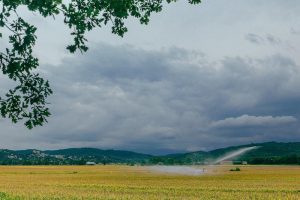

How Much Can You Save With a Smart Line Irrigation System
Table of Contents Irrigation systems used in the earlier days are outdated and don’t hold value anymore, and even more costly to maintain. These irrigation
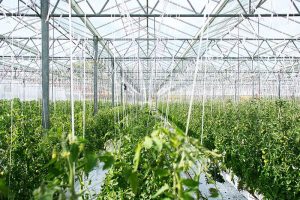

What Is the Best Watering System for a Greenhouse?
A watering system is one of the most important parts of your greenhouse so it is important that you choose the right one that doesn’t


